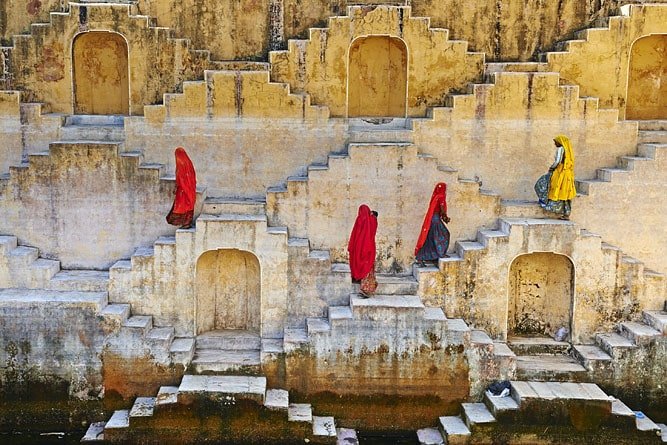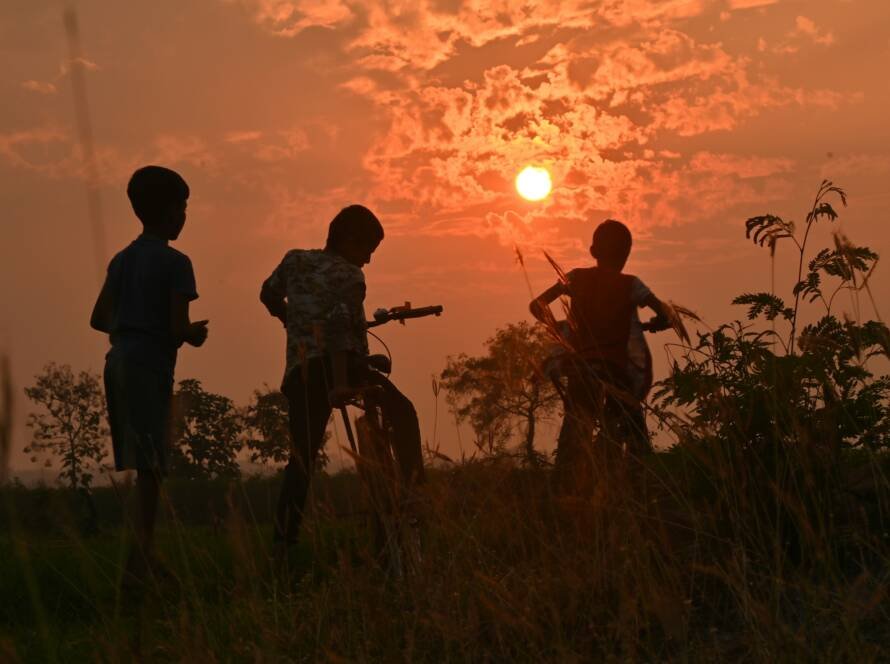Reimagining Education Through Relevance, Rootedness, and Realization
There is a quiet but profound shift unfolding in the realm of education — a growing recognition that true learning cannot remain confined to classrooms, chapters, or checkboxes. It must reach out into the world, touch lives, and return with questions that stir the soul. In this shift, Project-Based Learning (PBL) has emerged not merely as an instructional strategy, but as an awakening — one that restores meaning, purpose, and connection to the learning journey.
Yet, for all its promise, PBL often risks becoming a borrowed template — disconnected from context, culture, and consciousness. What if, instead, we looked inward? What if we crafted PBL experiences not from imported models, but from the deep, living wellsprings of Indian Knowledge Systems — rooted in wisdom, aligned with life, and relevant to the times?
In doing so, we don’t just make learning experiential. We make it authentic. We make it sacred.
Beyond the Walls of the Classroom
The world our children inherit is not only fast-paced and digitized, but also fractured — by ecological crises, ethical dilemmas, and a growing disconnection from community and self. The NEP 2020 rightfully calls for a response that is holistic, multidisciplinary, and values-based — where education is not simply about survival, but about shaping thoughtful, compassionate, and capable human beings.
Project-Based Learning answers this call.
When learners engage in real-world problems, collaborate across disciplines, build tangible solutions, and reflect deeply on their process — learning becomes alive. It becomes personal. But for it to truly touch hearts and transform minds, it must speak the language of the land, echo the spirit of the people, and flow from the lived experience of the learner.
And this is where Indian Knowledge Systems offer not just inspiration — but illumination.


India’s Ancient Learning Traditions: The Original Project-Based Learning
Long before the term “project” entered educational discourse, the land of Bharat had already embraced learning that was inquiry-led, practice-driven, and rooted in purpose.
In the gurukuls of yore, learning was never delivered as abstract theory. It unfolded through immersion, service, and reflection. A student of architecture didn’t study geometry in isolation — they walked temple corridors, observed cosmic alignments, and built with their own hands. A learner of Ayurveda identified herbs in forests, prepared medicines, treated the sick, and learned ethics alongside science.
This was learning through life, for life. This was education as experience, embodiment, and evolution.
Indian Knowledge Systems — whether in astronomy, music, ecology, governance, or textiles — were never compartmentalized. They were integrative, project-oriented, and deeply contextual. They encouraged observation, dialogue, construction, and contemplation. They cultivated not just intellectual capacity, but moral clarity and cultural rootedness.
Reimagining Today’s Classrooms: PBL Rooted in Indian Wisdom
To make Project-Based Learning truly transformative in modern Indian classrooms, we must root it in local realities and traditional knowledge. When students engage with projects that are culturally meaningful and socially relevant, learning becomes both impactful and inspiring.
Here’s what that could look like:
-
Designing sustainable architecture inspired by Vāstu Shastra and traditional stepwells.
-
Mapping local water systems while studying indigenous rainwater harvesting methods like johads and baolis.
-
Exploring ethnobotany by documenting medicinal plants referenced in Ayurveda or Charaka Samhita.
-
Studying local governance through real engagement with Panchayati Raj institutions and village elders.
-
Reviving handloom traditions by connecting with artisan communities and analyzing their economic ecosystems.
These are not token gestures to glorify the past. They are pathways to engage with the present, grounded in lived experience, cultural identity, and a deeper understanding of sustainability, equity, and innovation.
Where NEP 2020 Meets Bharat’s Living Legacy
The vision of NEP 2020 is beautifully aligned with this approach. It speaks of:
-
Experiential and vocational learning,
-
Integration of art, craft, and culture,
-
Environmental consciousness,
-
Interdisciplinary, inquiry-based approaches,
-
And most significantly, education rooted in Indian ethos.
PBL grounded in Indian Knowledge Systems is not just a pedagogical innovation — it is a civilizational response to an educational crisis. It nurtures the whole child — head, heart, and hands. It fosters pride in one’s heritage while preparing learners to solve modern challenges with wisdom and integrity.
It helps students grow not just as professionals, but as citizens, as custodians, and as conscious creators of a more compassionate world.
From Transaction to Transformation: The True Purpose of Learning
Let us not reduce education to content delivery and career preparation. Let us remember that learning, at its best, is a sacred act — one that shapes not only minds, but lives.
Project-Based Learning inspired by Indian Knowledge Systems revives that sacredness. It brings back the joy of exploration, the dignity of labour, the importance of purpose, and the harmony between knowledge and nature.
It reminds us — and our children — that to learn is not just to acquire information.
It is to awaken insight, to deepen identity, and to align with one’s inner calling.
The Invitation
To the educators: bring your classrooms to life. Let your students build, question, observe, and serve.
To the parents: demand learning that is not only rigorous, but relevant, rooted, and reflective.
To the learners: remember, your education is not a race. It is a journey of self-discovery, of becoming.
Let us build a generation not just trained for jobs — but prepared for life.
Not just knowledgeable — but wise.
Not just competitive — but conscious.
Because when education is rooted in who we are and what our world needs,
it does not merely inform — it transforms.



